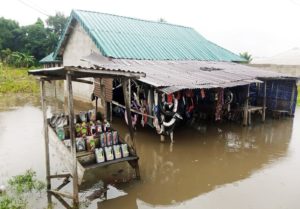On March 27, 2022, following a record rise in homicides, the congress of El Salvador approved governmental emergency powers and suspended certain constitutional protections in an effort to curb street violence. Salvadorian police reported 62 deaths the day prior and attributed them to warring gangs. Historically, El Salvador has maintained some of the highest murder rates in the world, mainly as a result of a violent 13-year civil war that raged from 1979-1992 which still reaps economic repercussions to this day. 30 years after the conflict, El Salvador has become increasingly violent and gangs such as MS-13 have turned the country into one of the most dangerous places in Latin America. El Salvador’s president, Nayib Bukele, has vowed to end this violence- an endeavor in which he has been greatly successful.
Bukele’s Territorial Control Plan
On June 1, 2019, Nayib Bukele assumed office as president of El Salvador and announced that combating gangs would be a major priority for his administration. Almost immediately, he enacted a seven-stage “Territorial Control Plan” which commenced two days after his inauguration. Stage 1 began with an increase of police and military presence in 17 of El Salvador’s most violent districts in an effort to retake territories held by gangs. Surveillance and territorial occupation, as well as an increase in security operations, resulted in over 5,000 gang-related arrests within the first two months of the program.
Bukele also put all of El Salvador’s prisons under extensive lockdown by enacting stricter confinement rules, banning visitors, and blocking cell signals in and out of prison facilities. These lockdowns increased in intensity during April of 2020 due to 77 gang-related murders that occurred over a three-day period. The government claimed that these murders were planned by gang members from inside prisons, and as a result, they enacted a 24-hour cell confinement rule to prevent further attacks.
During the second stage of his plan, Bukele’s administration focused on preventing crime by improving financial opportunities and quality of life in the 17 districts. Improved healthcare and education, new scholarship opportunities, and business programs were among some of the programs promised by the government. Additionally, infrastructure development projects for community sports centers, schools, and skate parks were pledged in attempts to lead youth away from gangs.
Stage 3 of Bukele’s plan sought to modernize El Salvador’s security forces, specifically the national police (PNC) and armed forces (FAES), by providing them with newer weaponry and improved technology such as drones, cameras, vests, helicopters, and rifles. Pay and benefits were also said to be increased and barracks were improved and expanded.
In July 2021, President Bukele commenced Stage 4 of his plan, where he announced the addition of 1,046 soldiers to the FAES and a plan to eventually increase the size of the armed forces to 40,000 members in 5 years. Stages 5 through 7 have not yet been revealed, but Bukele’s plan has proved successful, as the homicide rate in El Salvador dropped from 36 (per 100,000) in 2019 to 17.6 in 2021.
The Outcomes of the Gang Crackdown
Despite this relative success, gang violence still remains prevalent in El Salvador, and earlier this year, on March 27, crime in El Salvador spiked as over 62 people were killed in a single day. However, President Bukele and the Salvadoran government responded swiftly, enacting a state of emergency that granted security forces more power. Certain constitutional protections were removed, and searches without warrants and arbitrary arrests became common.
The age of criminal responsibility was lowered from 16 to 12 and sentences for gang members were increased from three to five years to 20-30 years. Laws punishing those spreading gang messages were also passed, granting sentences of 10-15 years. Additionally, military presence was increased significantly and hundreds of checkpoints were installed around neighborhoods. Those deemed suspicious were forced to strip so they could be checked for weapons and gang tattoos. Police raids on houses also increased and a strict curfew was enacted in several cities, essentially putting entire neighborhoods under lockdown.
On May 25, 2022, the national police announced that they had arrested 34,500 people in the 29 days since the commencement of Bukele’s state of emergency. As of today, the official number of arrests is believed to be well over 55,000, according to police officials and government ministers. As a consequence of the influx of arrests, prison conditions worsened exponentially. Some prisoners were denied mattresses and others had their daily meals reduced to two small rations of tortillas and beans as a punishment. Due to overcrowding issues, Bukele announced on Twitter that he was constructing a new prison meant to hold tens of thousands of prisoners. As of October 30, 2022, El Salvador remains in a state of emergency.
Conclusion
While authoritarian in nature, one cannot deny the effectiveness of Bukele’s national security policies and the period of historical peace being experienced by the people of El Salvador can be attributed to his government’s fierce crackdown on gangs. While the homicide rate in El Salvador has risen in the past year, it is once again falling. It was reported earlier this year that El Salvador experienced 10 consecutive days without a single violent death. Due to his reduction of gang violence, Bukele has been widely popular in El Salvador and has enjoyed approval rates of between 84 to 87%, which are some of the highest in Latin America.
However, he is not without disapproval, as human rights organizations have criticized him for his reduction of civil liberties and arbitrary arrests. One of these human rights organizations, Amnesty International, has accused Bukele’s government of arresting people on dubious charges such as being associated with a gang member or for simply having a criminal record. Additionally, Human Rights Watch has condemned him for alleged abuses committed by security forces during the state of emergency, such as extrajudicial killings and deaths in police custody.
Salvadoran opposition groups and the United States have also accused him of collaborating with MS-13 and forming treaties with other gangs. Specifically, they have claimed that Bukele and his administration have negotiated secret pacts with MS-13 members to stop killings and support them during elections in return for favorable prison conditions and judicial leniency. Despite this, numerical data and polls paint a different picture, a picture of a country becoming increasingly safer and a population content with its current leadership.
Featured image by: AP






